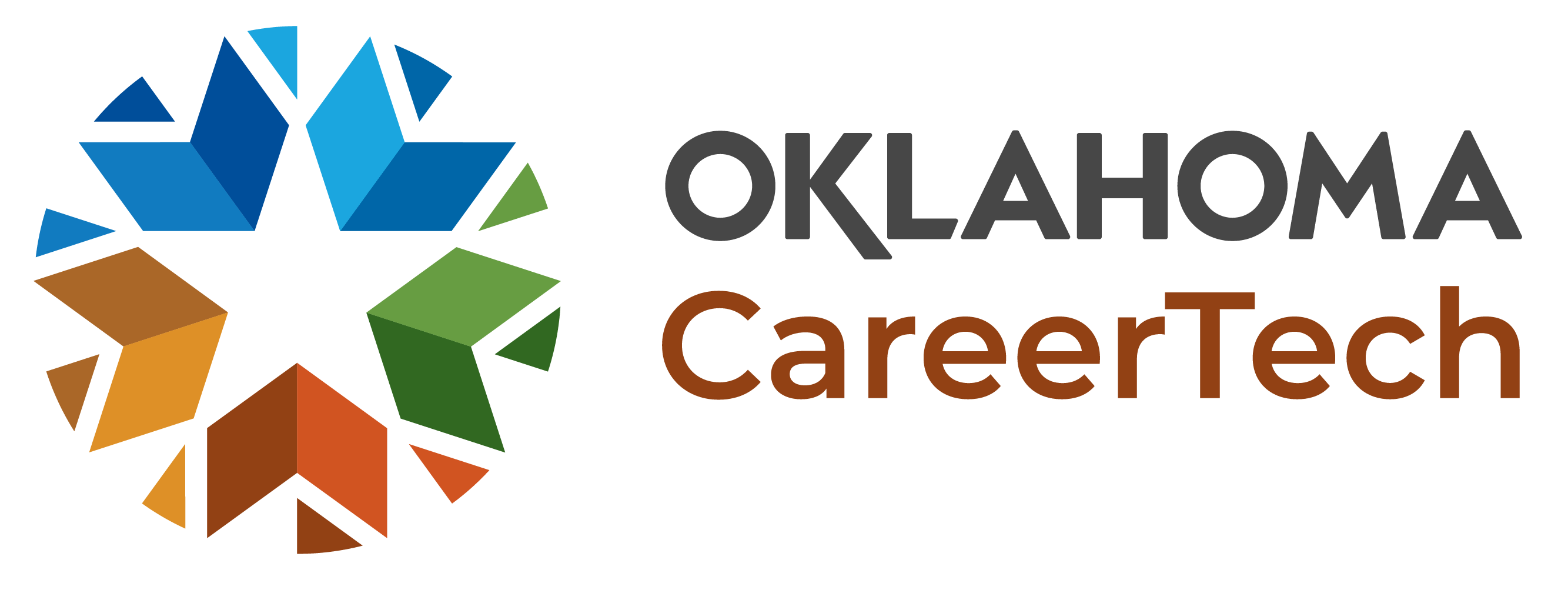How to Future-Proof Your Career
A presentation from the Oklahoma Department of Career and Technology Education
What does the future of work look like?
The jobs of tomorrow are changing today. The workplace has constantly been evolving but the accelerated pace of change is new. You might have learned about the “industrial revolution” in school, but the workplace is actually going through the Fourth Industrial Revolution, sometimes called Industry 4.0. Several disruptors are now shaping the future of work. These disruptors can be organized broadly as technology-driven change and people-driven change.
The future of work is full of opportunities for individuals who prepare themselves to succeed beyond what their jobs require today.
The presentation, “How to Future-Proof Your Career,” looks at how the workplace is changing and how individuals need to prepare for it. First, we take a brief look at how the workplace is changing due to changes in technology. A big part of the change results from 5G internet, which allows for more and faster computing power. Next, we look at how the changing workforce—the people who work—is having an impact on the workplace.
These two major causes of change in the workplace — technology and people — require workers to have specific capabilities. These capabilities are mostly not new. What is new is that these “durable capabilities” are becoming even more important. They are becoming so important, in fact, that we need to do more to teach them to others and to develop them in ourselves.
The core of the presentation consists of five practices that anyone can use to help “future-proof” their career, whether they are educators, learners, or business clients.
Insights from a wide variety of expert sources form the foundation of the presentation. These sources include Accenture, America Succeeds, Cognizant Center for the Future of Work, Deloitte LLC, Emsi Burning Glass, Korn Ferry, McKinsey Global Institute, MIT Task Force on the Work of the Future, World Economic Forum, and others.
What will I learn about?
After participating in “How to Future-Proof Your Career,” you will be able to:
- Identify technological causes of change in the workplace.
- Identify demographic causes of change in the workplace.
- List durable skills needed in a future-ready workforce.
- Explain five practices to future-proof your career.
Participants will also receive a personal action plan to help them get started today on each of the five practices.
Who could benefit from this presentation?
Everyone can benefit from the insights and key practices in “How to Future-Proof Your Career.”
Individuals — including students and current workers — can learn about simple practices to implement today that will help prepare them for the workplace of tomorrow.
Supervisors can identify the durable capabilities their employees will need. They can also benefit from the same key practices to help them excel as leaders in the future of work.
Educators and trainers can use the key practices as a new framework for delivering training and for starting the journey to the future of work.
Related resources
How to Future-Proof Your Career - A companion publication to this presentation. The jobs of tomorrow are changing today. The workplace has constantly been evolving, but the accelerated pace of change is new. Several disruptors are now shaping the future of work. These disruptors can be organized broadly as technology-driven change and people-driven change. Part 1 of this guide looks at how the workplace is changing and how individuals can prepare for it. Part 2 of the guide consists of five practices that everyone — whether they are educators, learners or business clients — can use to help future-proof their careers
What is the Future of Work? - A short video from the World Economic Forum
“Navigating the future of work,” Deloitte Review, Issue 21 - A free collection of insights that can serve as an introduction to future-of-work concepts
Preparing Technicians for the Future of Work - A project of the National Science Foundation and the Center for Occupational Research & Development (CORD); project website includes free resources such as podcasts, instructional cards, and technician perspectives
Durable Skills - This website connects what we know about durable skills from the demand side (what employers want) with how students are being prepared on the supply side (what our education system is producing).
What should I do next?
To schedule the presentation “How to Future-Proof Your Career” contact:
Craig Maile
(405) 743-5448 | Email
About the Presenter: Craig Maile has worked at the Oklahoma Department of Career and Technology Education since 1986. Much of his early curriculum work was in support of business and industry services initiatives at the state agency. He spent 30 years developing curriculum and managing curriculum production before helping to create the Resource Center division in 2018. Craig has a degree in technical communication and a master’s degree in occupational and adult education, both from Oklahoma State University.


